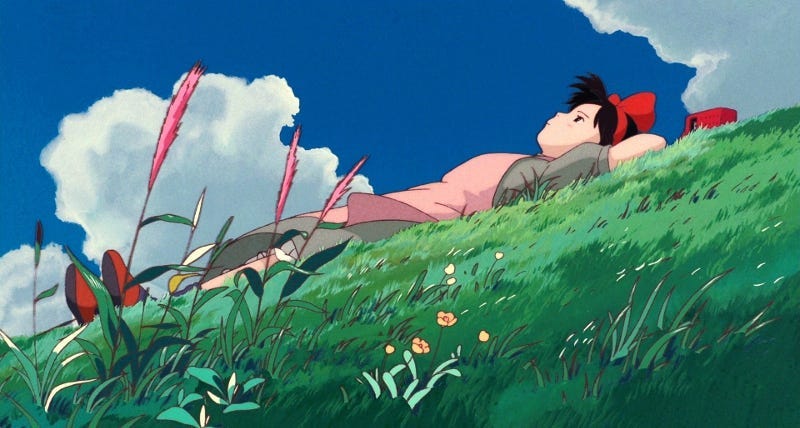Dear friends,
This post is for anyone who has felt stuck along the way.
It’s also for my friend Rish - I hope he’ll be back soon.
Hitting the Wall
In the runners’ world, there’s a concept called “hitting the wall”. I couldn’t believe how awful it was the first time I hit it.
You run and run, and suddenly, you hit a point where your body gives up on you. You can’t even raise your legs for another step. It felt like collapsing face-first into a brick wall. Game over.
I found myself hitting a similar wall on my path of writing. And I know I am not alone. It’s called writer’s block.
You write and write, and your brain just gives up on you. You lose momentum. You can’t even write another word.
Writer’s Block is Here to Protect Us
We writers have high standards for ourselves.
We wake up early. We exercise. We eat a perfectly balanced diet. We want to make an impact with our beautifully crafted sentences. We are damn serious.
We also live in constant fear of disappointing our readers, as if the slightest drop in quality could spiral into a wave of unsubscription.
What’s worse is that we are afraid of disappointing ourselves. After all, we have invested so much of our time here.
We overthink. We keep deleting what we wrote. We sacrifice time with our families and friends so we can keep typing on the keyboard. We write as if the world wouldn’t spin without our next post.
We don’t know when we are getting ahead of ourselves.
And I like to think of writer’s block as a mechanism to protect us from losing our minds.
Writing is Not Natural
Let’s take a step back and recognize this: Writing is completely unnatural from an evolutionary standpoint.
Our lives today are weird compared to the majority of the time our species has experienced.
Think about the environment we were in since we evolved into homo sapiens around 300,000 years ago:
Surviving the wilderness in the savannah, wetland, and forest
Hunting, scavenging, and gathering our next meal
Making tools from stones, wood, and animal skins
Migrating to new places because of the changing climate and food sources
This is what our genes evolved for.
Our bodies are not built for sitting in front of a computer, contemplating the meaning of writing in the age of AI, or figuring out how to express ourselves through written words.
The earliest form of writing only evolved in Egypt and Mesopotamia at around 3500 BC. It means we have spent less than 1.6% of our time (3,500 / 300,000 = 1.6%), genetically speaking, on writing and reading texts.
We made the mistake of believing that a few thousand years is a long time. It is not.
We are just getting started
It feels nice to be out in the wild, looking at the clear blue sky, sharing a meal with our loved ones, running around in the open field, spending time with our friends, and belonging to a community.
Just a couple of centuries ago, the world’s average literacy rate was less than 20%.
The fact that you and I can communicate in the form of written words today is relatively new.
My grandma was born in the early 1940s during the Chinese Civil War. (See the chart below - Grandma was the majority in her era.) It was considered lucky for her to get the next meal. No one had time for school, books, or knowledge. What’s wild is that, in just two generations, we now take reading and writing for granted.
We are among the first generation in the history of our species to know how to read and write at this scale.
The writer’s block should be there because our brains are not quite ready yet.
I can see it in my kids.
As much as I want to force them to pick up a pen and write their ABCs, they show the same level of eagerness to run away like a deer. Yes, they do love reading books. But if you give them options to go outside and play instead, it will be a no-brainer. They will throw those books and wear their shoes.
So, like the runner’s body shutting down on itself to protect the system, our brains want to stop because something is not right. Our brains are trying to protect us.
Once I reframe this, I feel a lot better. The writer’s block becomes something for me to embrace whenever I get stuck writing. I no longer force my way forward like I used to.
The Way Out
The fix to the writer’s block is easy.
You already know the answer: give yourself a break.
Don’t force your way through. Stop trying to overpower your brain. There is a reason why your brain is giving up on you. It is sending you a signal that you should get some rest from the most unnatural thing you are trying to do.
These days, I have learned to think differently whenever I hit that block:
I stop writing when I don’t have the urge to write - I let myself get bored, force myself not to use social media, and just think of something else. Oftentimes, precisely when I am not thinking about writing at all, that will be the moment when the best idea comes. Then I will go back to the laptop.
I don’t schedule my writing. I only write when it feels right (often when the kids are asleep)
I remind myself of the fact that I am sitting in front of a supercomputer in an air-conditioned apartment. There are eggs in the fridge, water from the tap, and electricity from the switch. I get to write some random thoughts and send them to you with a touch of a few buttons. This is a fantasy beyond our most imaginative ancestors. I couldn’t be more grateful for it.
I ask other writers if they are interested in reviewing my drafts when I got stuck. (Thanks, Linart and Clare) You get the most useful feedback that breaks down blind spots and biases this way.
Yes, hitting the writer’s block still sucks. But every time I hit that wall again, I remind myself how fortunate I am to be alive at this moment in time.
Being stuck is a privilege most of our ancestors never had. The only thing left here is to give this block a big hug when it shows up to protect our wavering minds.
Until next time.
- Franco
Something extra to help you get unstuck:
👓 Watch 10 Years with Hayao Miyazaki on NHK World Japan, a 4-part documentary
👣 The birthplace of modern humans
🚶🏽♂️ A short walk can make you more creative







Love this Franco. And thank you for the gentle nudge :) I needed that. I'll be back soon, better than ever.
Great insight!
« The earliest form of writing only evolved in Egypt and Mesopotamia at around 3500 BC. It means we have spent less than 1.6% of our time (3,500 / 300,000 = 1.6%), genetically speaking, on writing and reading texts. »